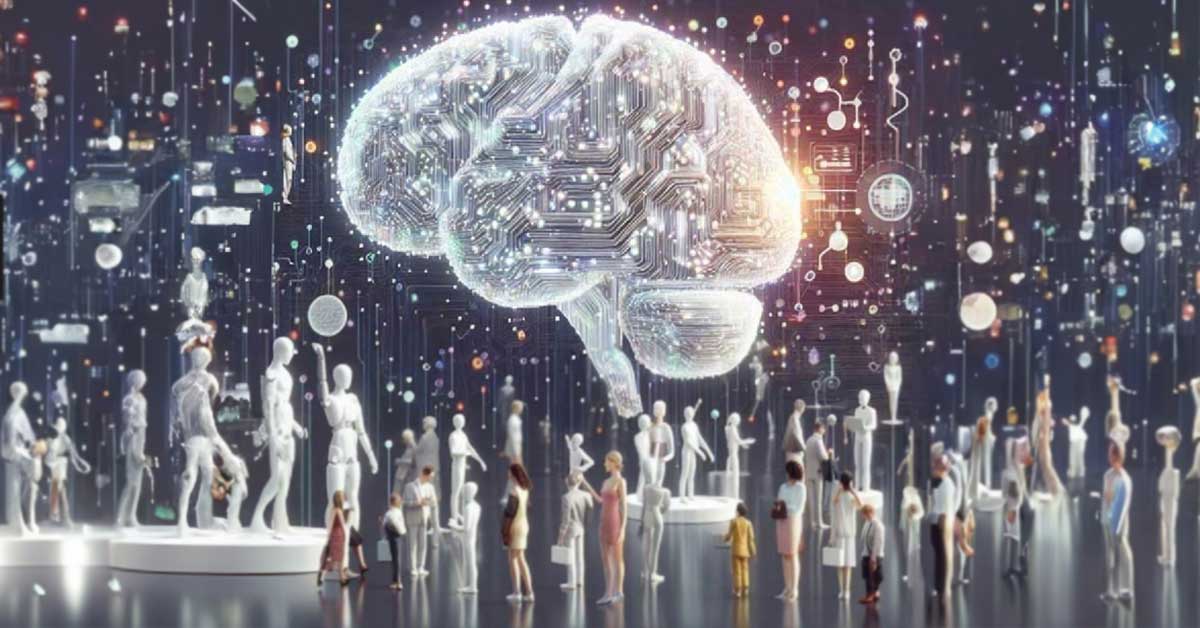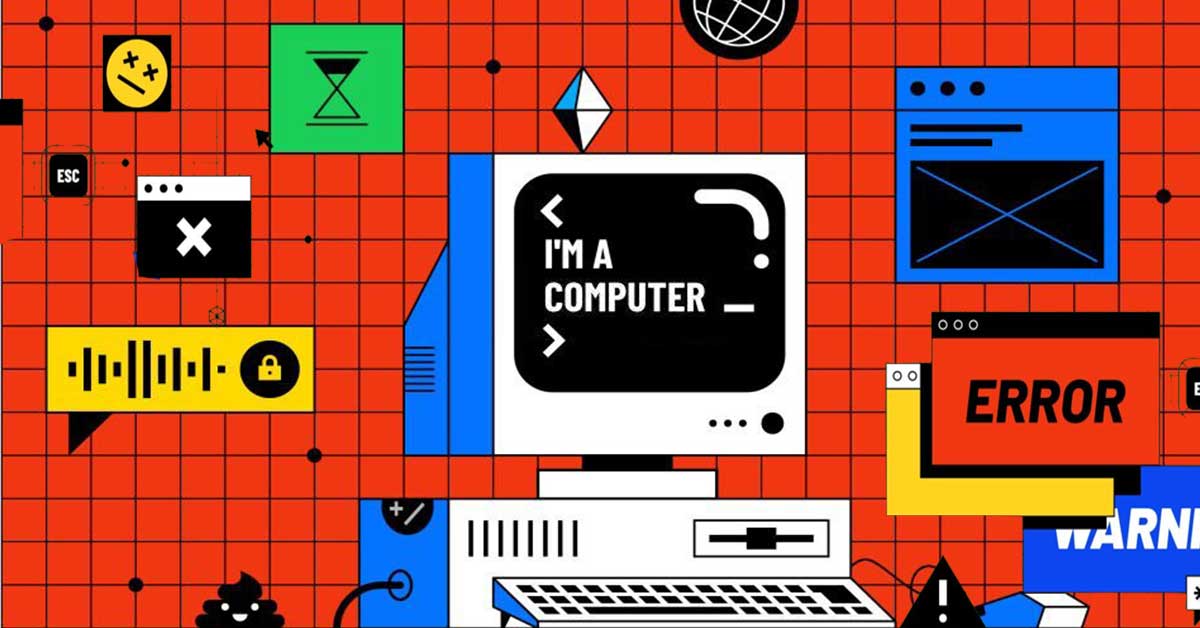The field of law has always been focused on human intelligence, critical thinking, and the interpretation of complex legal issues; however, with artificial intelligence (AI) and the generative AI boom, the legal industry is about to change forever.
Just imagine if you could complete legal tasks faster, more accurately, and at a lower cost. Well, the future of law powered by Artificial Intelligence (AI) is making this a reality, not in the future in 2023.
Like everything, there are two sides to this: advantages and disadvantages. I'll explain, but first, we have to start from the beginning.

What is Artificial Intelligence and Generative AI?
Have you ever wondered about artificial intelligence (AI), often simply referred to as AI? It's a branch of computer science for creating smart machines. These machines can mimic human-like intelligence, taking on tasks that usually need human thinking.
AI systems use some pretty advanced stuff like smart algorithms and machine learning tricks to dig through vast piles of data, get insights, and make smart decisions.

When we talk about AI, we have to mention Generative AI as well. This fancy tech takes AI to the next level by letting it create stuff all on its own. It's like AI going beyond its training to make things like text, images, or music, and they're not just gibberish - they can be pretty darn realistic and sensible. Generative AI taps into deep learning and neural networks to pull off these magic tricks with other AI tools.
I'm not going to talk about Artificial General Intelligence (AGI) here; if you wanna know more about AGI and machine learning, read this article 'Artificial General Intelligence (AGI) Ethics Dilemmas.'
How is Artificial Intelligence Used in the Legal Industry?

Benefits of adopting AI for law firms? Plenty. First up, it's all about efficiency improvements. Just imagine speeding up tasks that used to take hours. That's what AI can do. Basically, it can simplify very complex processes, making everything smoother and, of course, more cost-effective because time is money.
And speaking of costs, AI can help law firms cut down on expenses. Tasks that once required teams can now be automated, which means fewer billable hours spent on mundane work.
But it's not all about numbers. The real game-changer is delivering exceptional legal services.
AI-Powered Tasks in Law Firms
The E-Discovery feature is one of the most important ones. An AI-based software could scan through electronic information, uncovering crucial case data. AI narrows it down with precision.

Let's talk about Streamlining the legal research process with AI. You can use AI to scan through extensive databases very quickly and find legal nuggets like regulations, case laws, drafts and more.
As if that's not impressive enough, there's document management and automation. The digital clutter in law firms can be overwhelming. The use of AI based systems can keep everything neatly filed and searchable, just a few clicks away. No more digging through piles of papers or folders on your computer.
The ethics and legal implications of AI
As we all know, the legal and policy frameworks have guided the legal profession for years, but right now, they must update and evolve to include and welcome AI.
AI and all the AI-based software programs themselves present a unique set of challenges, from data handling to algorithmic decision-making. Regulations and laws need to be updated, and be aware of these changes and, of course, the issues that they bring.
Another critical aspect is addressing the ethical concerns in AI utilization. AI is only as unbiased as the data it learns from. If past legal decisions contain biases, AI might inadvertently replicate them. That is why I strongly believe in human touch and overseeing the AI work by a human.

Data is at the heart of AI, and ensuring data quality and Privacy is paramount.
However, or whatever use case you get out of an AI, remember Privacy is a significant concern. Lawyers must be aware of how information is stored and shared in AI applications. As an example, Google, X (previously known as Twitter), and Meta changed their privacy policies to enable AI to gain data and train from them.
Preparing Legal Professionals for the AI Era
Preparing legal professionals for the AI era is a crucial step. It's not about being replaced; it's about being equipped with new skills and embracing AI as a valuable tool.
Acquiring new skills to harness AI effectively is a necessity. Lawyers must understand AI's capabilities, its limitations, and how to utilize it optimally. It's a learning curve, but one that enhances the legal profession.
Embracing AI as a valuable tool is a mindset shift. It's about understanding that AI is not a threat but a companion. It's there to broaden access to legal services, making them more affordable and efficient.

With the right skills and mindset, legal professionals can utilize AI to provide even better services to their clients. AI is not the future; it's the present.
Pros and Cons of Artificial Intelligence in Legal Practice
AI has an impact on everything right now. It's basically changing the way we live. And just like everything, AI used on the legal side has disadvantages, too.
Of course, there are advantages, too, Such as cost reductions in initiating and pursuing litigation, Enhancing productivity with AI-driven automation, etc.

However, it's not all smooth sailing. There's the potential for frivolous AI-written lawsuits. With AI's ability to generate content, there's a risk of misuse. This raises questions about ethics and the responsibility of AI-generated legal documents.
It can't replace the nuanced expertise needed in jury presentations, strategic decision-making, client relationships, and leadership. These are domains where human intelligence remains paramount.
The Impact of AI on Law Firms and the Future

It's not just law firms that are adopting AI. Legal departments within organizations and law Firms increasingly integrate AI into their operations. The excitement among C-suite executives about AI's potential is noticeable. They see AI as a way to deliver cost-effective legal services. And nobody is complaining about that, for sure.
ChatGPT's impact on legal services is worth talking about. ChatGPT and similar Chatbots are changing client interactions, making legal information more accessible and easier to understand.
When we talk about Artificial intelligence, cognitive computing, machine learning, and natural-language processing, these technologies are the driving force behind AI's capabilities in the legal domain.
If we could sort the prominent areas of concern, like Privacy and data security, that would be a huge win not only for the legal side. as AI systems require access to sensitive client information.

Additionally, the widespread adoption of AI in law firms may lead to job displacement for certain legal professionals, making it essential to reskill and adapt to technological advancements.
Yes, obviously, not all jobs are going to go away because of this AI boom, but inevitably, some jobs will. We discuss this dilemma in a previous article, and we discuss how to Future-Proofing Your Career. If you have any concerns, I recommend you to read that.

As we close this discussion on AI in the legal industry, it's evident that the transformation is already underway. The potential is vast, and the opportunities are abundant.
The legal profession stands at the threshold of a new era, whether you like it or not. New laws must be created for these new technological eras, and only that way could we avoid situations like 'The Almendralejo Nightmare incident.'













